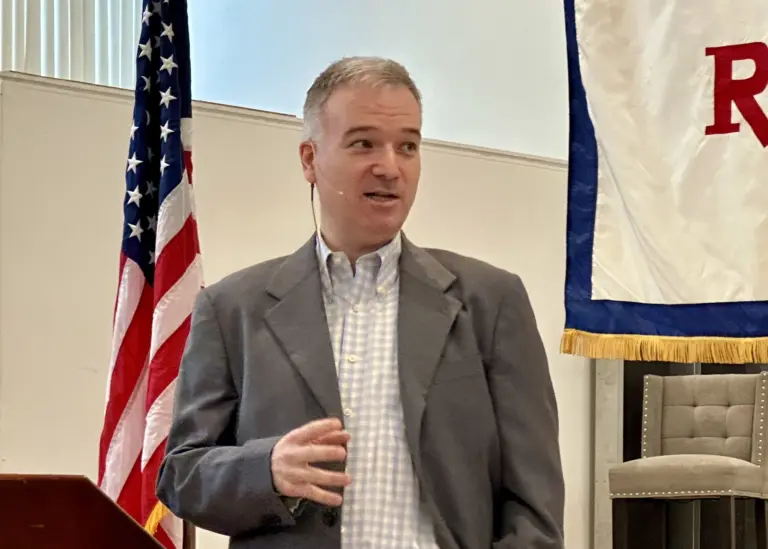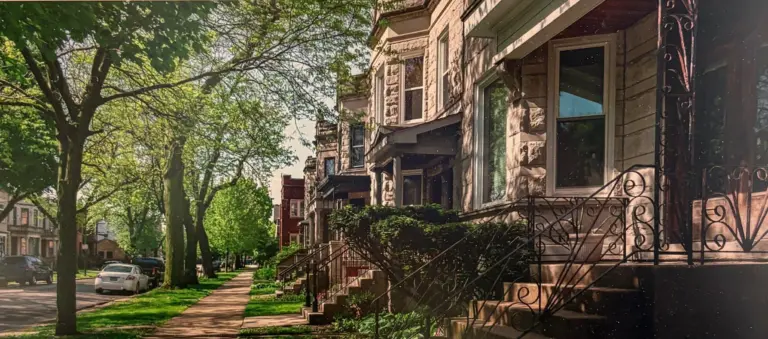By Drew Williams
By the late 1700s, the economics of slavery were so entrenched in the British Empire that only a handful of people thought anything could be done about it.
That handful included the English aristocrat William Wilberforce, who was to write, “So enormous, so dreadful, so irremediable did the [slave] trade’s wickedness appear that my own mind was completely made up for abolition. Let the consequences be what they would: I from this time determined that I would never rest until I had effected its abolition.”
With this firestorm for injustice in his heart, Wilberforce and a group of trusted friends (called “The Clapham Circle”) mobilized the public, and took on the slave traders and the British Parliament to end the slave trade in the British Empire—eventually leading to the Abolition of Slavery Act in 1833.
A few thousand years before, another well-educated, wealthy and powerful man had a similar conversion that brought about the eventual emancipation of a whole people group from the oppression of a powerful regime. Like Wilberforce, young Moses was accustomed to the finer things in life but, despite all his surroundings of being raised by the daughter of Pharaoh, Moses knew that he was a Jewish boy living the Egyptian dream. At Exodus chapter 2, verse 11, it says, “One day, after Moses had grown up, he went out to where his own people were and watched them at their hard labor.” Enslaved for 400 years, a thriving economy was being built off the backs of Hebrew slaves. Moses’ heart was ignited with rage as he witnessed firsthand the oppression of his people and in a passionate outburst, he killed an Egyptian slave owner who was beating a Hebrew slave.
Forty years later, having fled from Pharaoh and now living as an outcast in the desert, Moses noticed a bush that, although burning, was somehow not consumed by the flames. It is easy to have the misconception that the miraculous sight of a spontaneously and perpetually burning bush caused Moses to transition from shepherd to patriarch, from criminal in hiding to the leader and liberator of God’s people. I wonder if there was a little more going on? I wonder if it is possible that the burning bush was, in fact, the means by which God got Moses to slow down long enough for Him to get his attention and convey a level of empathy most of us never think to ascribe to God.
Bill Hybels paraphrases the Lord’s conversation with Moses in this compelling way: “Moses, I completely understand the rage you feel. I too have seen the misery of my people in Egypt. I have felt their anguish as they suffer. And for what it is worth, I hate the sorrow and suffering as much as you do. If you can believe me, I hate it more. I am stirred in my Spirit, Moses. I have decided to intervene from heaven. I have chosen to rescue my people and I want you to help me. If you will participate in my plan, then I will harness the internal firestorm that rages inside of you and channel it into Holy action that will set my people free from slavery.”
This encounter was a powerful, spiritual congruence, or connection, that linked Moses’ priorities to the priorities of God. We witness the same divine congruence over William Wilberforce’s life.
Does your heart burn with a passion for some local or global injustice? If so, is it remotely possible that God is meeting you in this place? If so, how would you know?
The suffering of the Hebrew people must have entered Moses’ consciousness because he made the decision to leave the protection and comfort of Pharaoh’s palace to see what was going on for himself. But it was only from outside the palace gates, out on the streets, that the captivity of his people truly broke his heart. Here is where he began to feel that firestorm within himself. If we are going discern God’s heart within us, we need to engage with a suffering world. We need to get out more! However, there is a caveat. If we expose ourselves to all that is broken in the world but neglect to view the brokenness from God’s perspective—which promises that everything is in the process of being restored—then I believe that we could be paralyzed by the immensity of global injustice.
For Wilberforce, the pathway to abolition was blocked by vested interests, parliamentary filibustering, entrenched bigotry, international politics, slave unrest, his own poor health and political fear. He could have been sucked into an impossible downward spiral of despair. Instead, through prayer and the community of God’s people, Wilberforce entered a life viewed from God’s perspective. Here is where our heads are lifted and our perspective shifts from that which our eyes can see to that which God is telling us is true. And in this reality, that which is enslaved can still be set free, what is broken can be mended, what is sick can be healed, what is hated can be loved, what is stained can still be made clean and what is wrong can be made right.
There is also another reason why we need to hold on to God’s perspective. Exodus tells us that Moses left the palace “after [he] had grown up.” So, was this when Moses was all emotionally, spiritually and physically healed up? No, this is a 40-year-old man with a stammer, something of a superiority complex and a murderously violent temper. If serving God is for all of us who are the emotionally, spiritually and physically healed people, then you can count me out.
Wilberforce was dogged by appalling health and, because of chronic pain, was mildly addicted to opium (commonly used as a painkiller in those days). It was in walking out their calling that Moses and Wilberforce were shaped and matured as Godly men. The day Moses was confronted with a burning bush, God instructed Moses to take off his shoes. Why? Because the ground was holy. This is an extraordinary visual demonstration: clearly God did not need a beautiful bush, a highly educated bush, a hugely successful bush or even an extremely pious bush. The important thing here is not the bush but that it was God who was in the bush! It is as if God was saying to Moses, “I am going to use you, but it will not be you doing something for Me but Me doing something through you.” Moses would be the vessel through which God would work. And emotionally, physically and spiritually, we are healed as we go.
So, what firestorm around injustice might the Lord have set in your heart? I wonder if we can become much too religious about that question. Is it possible that the very thing that stirs your heart as you read the newspaper or watch TV, or as you drive through your community and say under your breath “somebody needs to do something about that…) might be exactly what the Lord is saying to you?
A man who as a baby was floated down a river in a basket as part of a wild and crazy plan to save his life grew up to lead a whole nation out of slavery. A village just outside of London called Clapham hosted a community of friends that brought down the global slave trade and eventually outlawed slavery. I guess when you look at the overwhelming odds that were against Moses and Wilberforce, you would have to conclude that God was with them. If you knew that God had planted His divine firestorm within you, if you knew that God was with you, promised faithfully to work through you and had set in place people who shared your passion, would it make a difference in what you did next?
The Rev. Drew Williams is senior pastor of Trinity Church in Greenwich.



